“I’m a champion of the people who don’t believe in champions
I got nothing but dreams inside
I got nothing but dreams“
– FALL OUT BOY
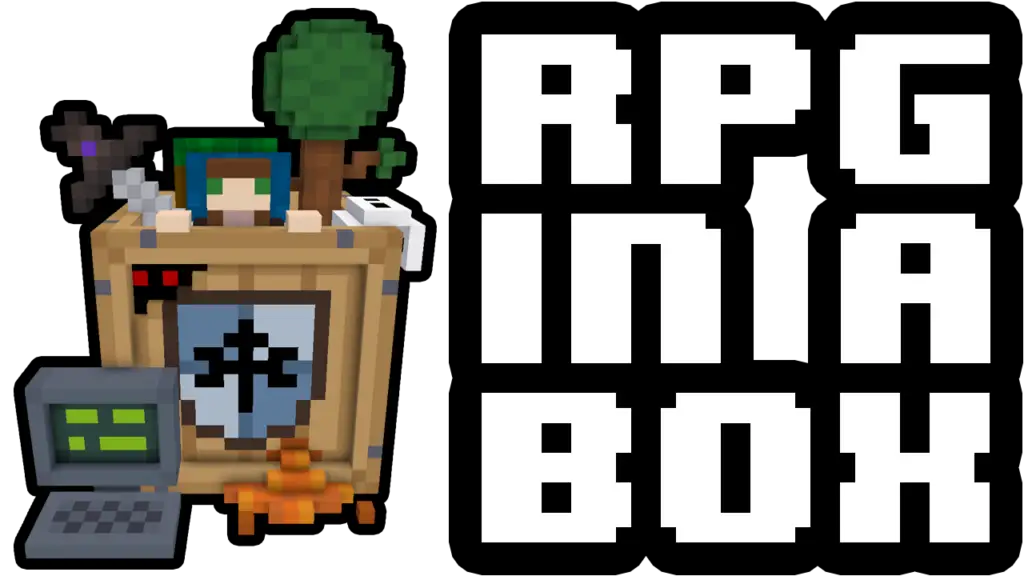
How many times, playing a game, have you thought “WHY isn’t it possible to do this!?!” or “WHY would I have to do that!”? In other words, how many times have you desired to be in the shoes of the developer?
I’m sure that, apart from me, everyone out there has great ideas about how to develop a game – Ideas that deserve to be realized. But how?
Well, nowadays, if you want to create a game from scratch – without knowing anything about coding – you can use incredible tools like Dreams, RPG Maker and so on. What about the past, though?
The first home computer that hosted a code-less game-maker was the Commodore 64. I don’t think I have to explain to you what this machine represented for millions of teens in the world, during the fabulous 80s and 90s. Let’s just say that Commodore 64 was the first computer powerful enough to allow for the development of such tools.
The most well-known was, probably, the SEUCK (Shoot’Em Up Construction Kit). It allowed anyone, with but a bit of patience, to create action games with vertical or horizontal scrolling. Like SlapFight, GunSmoke, Led Storm, Xevious, etc.
Of course, even on some less powerful machines, there had been something similar before. Like The Quill on the Spectrum, which was a program to write home computer adventure games. Yet there was nothing compared to a “monster” like the SEUCK.
And let’s not forget some other interesting game-creators, that deserve a mention: The GameMaker from Activitsion, the AGCK: Arcade Game Construction Kit and many others.
So, nowadays, there are so many great toolkits that the only obstacle to the release of OUR games is really just our own laziness.
Do you want to create a 3D arcade adventure? Then try DREAMS from Media Molecule.
Do you want to realize the definitive JRPG? Then the umpteenth version of RPG Maker is just around the corner (man, how do I hate it…).
Yes, but what happens if you want to develop a western voxel RPG with turn-based combat? Well, the answer is quite simple: you can use “RPG in a Box” – the new toolkit developed by Justin Arnold!
Are you curious about it? Then you can’t miss my interview!
P.S. I’d like to say a very special thanks to McValdemar for his great contribution to this article. I’d be happy if I had even half of his memory and half of his muscles!
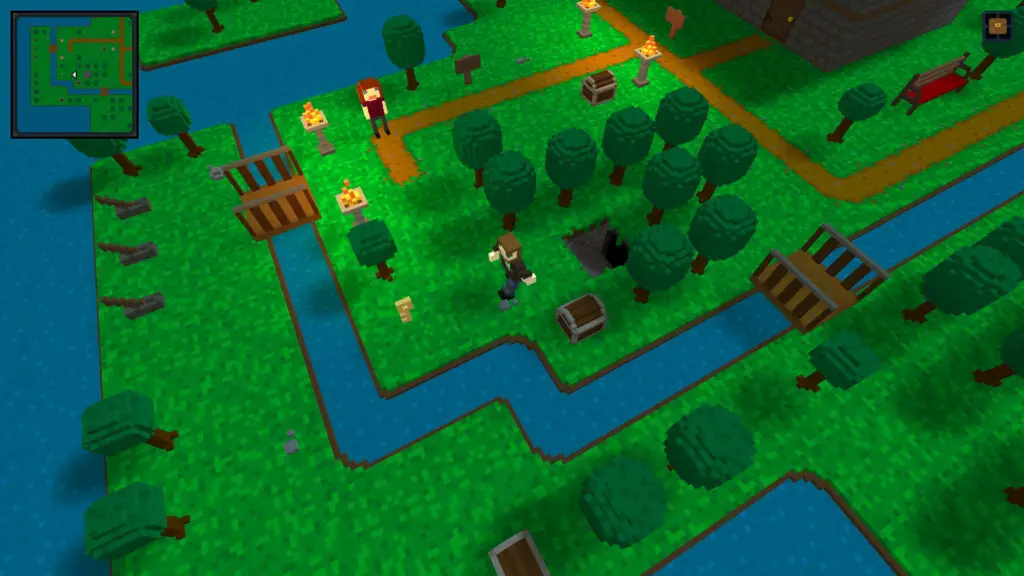
1st Turn) How long have you been developing RPG in a Box?
I started developing RPG in a Box about 7 years ago. It’s kind of a spiritual successor to RPG Toolset, which was a previous project of mine from the mid-2000s. I worked on a few different iterations of it using various technologies off and on over the years, and then finally rebooted it as RPG in a Box at the beginning of 2015 – shortly after the Godot Engine 1.0 release. RPG in a Box is a continuation of my original vision and has the same basic concept as RPG Toolset, but with voxels! I believe that voxels are a key component of my vision, a missing puzzle piece of sorts, as they provide a way for users to easily build and animate their own 3D models directly within the software.
2nd Turn) I’m one of those people who are convinced to have so many interesting ideas about “how to realize the RPG of the century” that I basically consider Brian Fargo a noob (well, more or less…). At the same time, I don’t know a thing about programming. So now I ask you, do you think I could have a chance with your tool, or will I remain a hopeless case of megalomania?
Yes, you could definitely use it! RPG in a Box is meant for everyone, even people with absolutely no game-making or development experience! With regard to programming, it’s designed so that you can do everything you want through the visual script editor without needing to write any code. It will require an understanding of some very high-level programming concepts (e.g. If-Then-Else logic), but they are very simple to learn! The intuitive system uses an easy-to-follow flowchart approach where you drag, drop, and connect actions and logic nodes together.
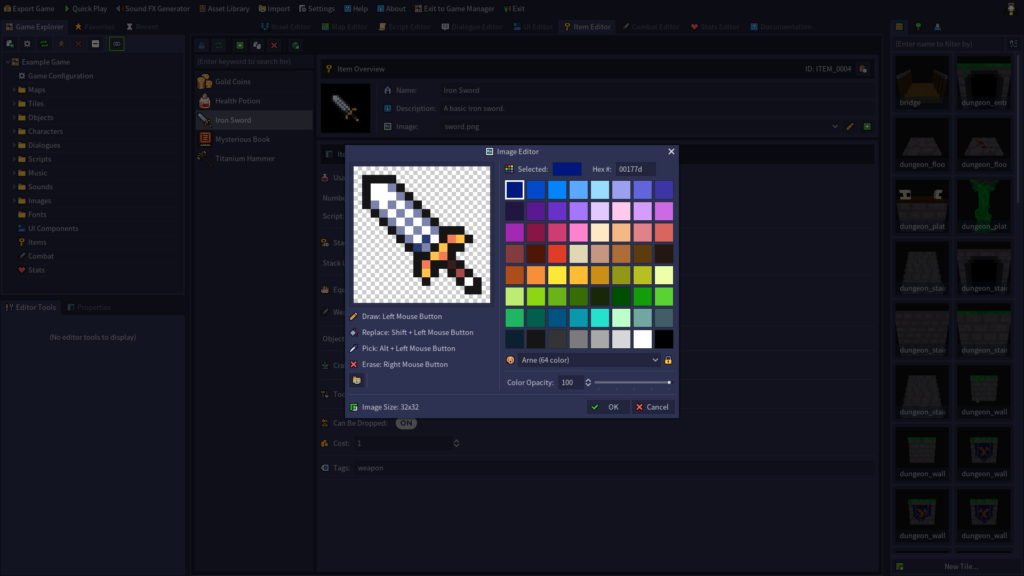
3rd Turn) I know this may sound like a foolish question, but I need to do silly things from time to time, so let’s do this: how long does it take to realize a medium-sized RPG with your tool?
Unfortunately, that would be quite difficult to put a number on, as there are many different factors to consider.
On top of that, I haven’t had the time to make a full game in it myself, which doesn’t help, haha. But generally speaking, RPG in a Box is set up in a way that you don’t have to worry about fiddling with lots of technical things to get a proper game up and running right away, which can save a lot of time. If you want to experiment with an idea, you can use the built-in assets (or just make some simple placeholder models) to dive right in and have a game that you can test out and play within an evening.
4th Turn) I think one of the most important aspects of a turn-based RPG is the combat system. On this regard, we can safely say that everyone has their own favorite system (needless to say, my reference point is Divinity Original Sin 2). So, the question: what combat system is possible to implement with your software?
Battles can be triggered from scripts (e.g. during a dialogue, stepping on a tile, or interacting with an object) or using the random encounter functionality, which lets you set up areas that randomly trigger battles.
You can freely mix and match combat systems, so you’re not required to have only one type in your game. For example, you could add some real-time slimes to a dungeon, but also have some goblins that trigger larger, turn-based battles. As I expand and improve upon each system, there will gradually be more flexibility in what you can do and more customization available. I’d like to allow a wide range of options for your game’s combat!
Here are some visual examples:
Tactical Turn-Based: https://youtu.be/pSDiX7bqpGU
Menu-Driven Turn-Based: https://i.imgur.com/XpG8zMz.gif
Mix and Match (Real-Time and Tactical Turn-Based): https://i.imgur.com/jTlv5sY.gif
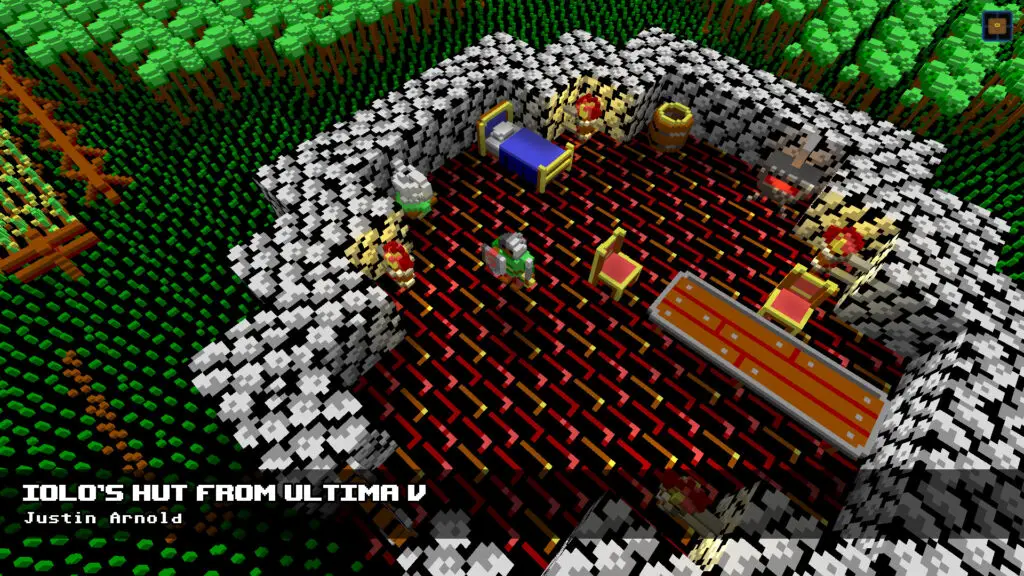
5th Turn) I’ve got to admit that, reading the actual and planned features of your tool, it’s almost impossible to not be quite impressed. With RPG in a Box, it seems possible to really create a very complex RPG, BUT (and here is my tricky question) aren’t you worried that all these options and choices can transform your software into something not suitable for people like me, that consider programming as an occult science?
No, I’m not worried at all!
I plan to always stay focused on the idea that RPG in a Box should be for everyone, no matter what their skill level is. I’d like for it to be a tool that anyone can use to express themselves creatively and imaginatively. Since the beginning, I’ve continued to try to design the engine with a beginner-friendly approach as to not require any programming or modelling knowledge while still providing a wide range of customization and openness.
When adding new functionality, I try as much as possible to set it up in a way that you can decide whether or not to use it – so that nothing complicated is ever forced on the user. I try to ensure that everything has defaults, presets, etc. that you can pick from, but to also design it in a way that advanced users have the option to go in-depth and tweak individual settings.
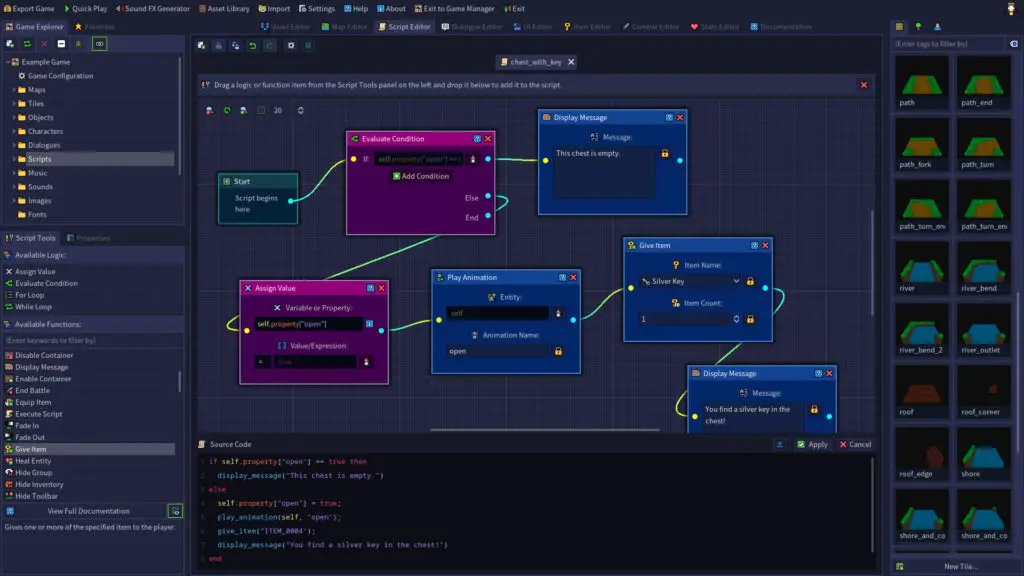
6th Turn) If I make enthusiastic comments about your software, can I have a free copy of it (ouch, this should have been a hidden question!)? Ok, let’s just forget it and change the subject. What were your inspirations for this project’s development? I mean with this engine it seems possible to create almost everything, but I’m sure that you have somehow modeled this tool having in mind some RPGs. What can you tell us about it?
Yes, there are definitely some games that come to mind!
Growing up with a Commodore 64 and a Sega Genesis, I think my primary and earliest inspirations would be the Ultima series and the Might & Magic series, as well as the Shining series (specifically Shining Force, Shining Force II, and Shining in the Darkness). Neverwinter Nights is one that stands out as an inspiration as well. In addition to being a great RPG, I thought it was really cool that it included a toolset for creating your own levels! And I should also include 3D Dot Game Heroes, as I loved its combination of voxels and RPG mechanics.
Generally speaking, I think my desire to develop a game maker really took off in 2004 after I began working on a project fittingly named “Untitled RPG”. This project was probably what influenced me the most to pursue the creation of a tool for easily making 3D RPGs. It was developed with C++ and GLUT, which I became interested in after taking a computer graphics course in college. When I first began I had the intent of creating an actual game, but after building a map editor I quickly realized that I enjoyed making the tools for the game much more than the game itself!
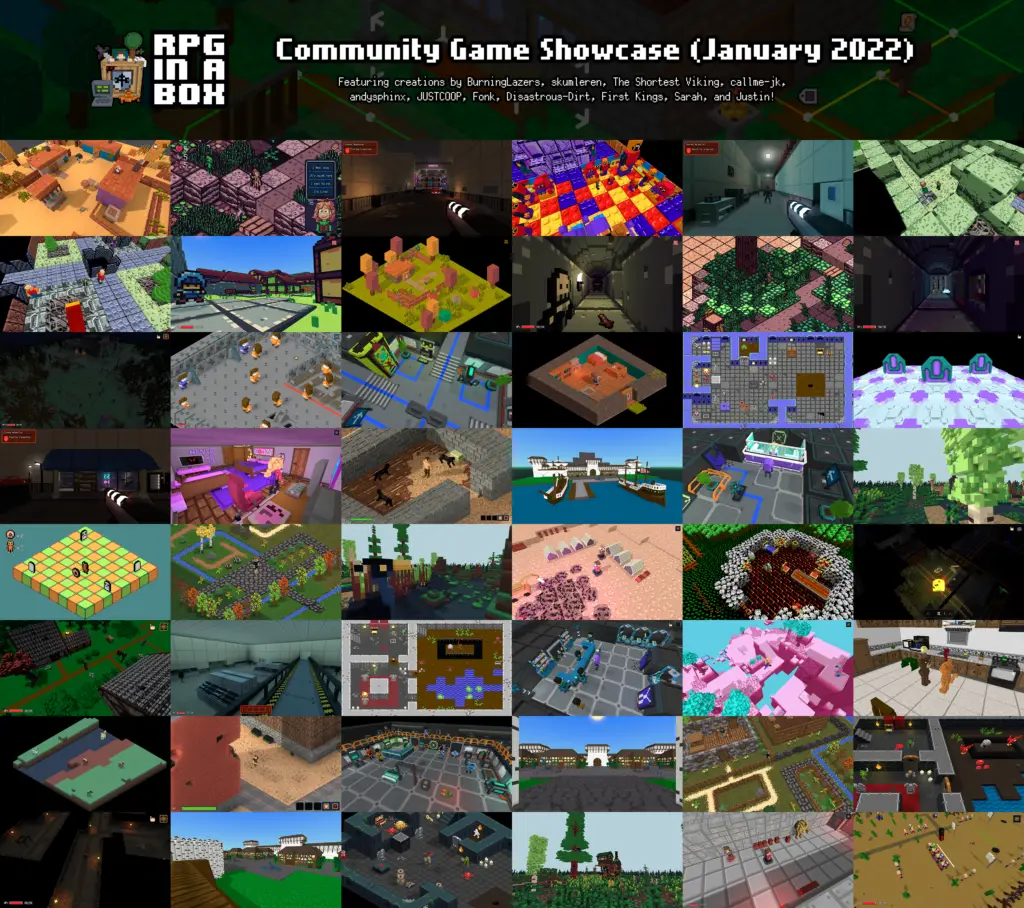
7th Turn) Ok, now let’s make some comparisons. On the market, you can already find other tools that let you create your favorite RPG. For example, the Japanese RPG MAKER (that I always hated!) comes to my mind. What are the pros of your tool? In other words, why should I prefer your engine?
I think the most appealing aspect would be that it’s a 3D engine, but it doesn’t stray too far from 2D concepts in that you’re essentially building block-based sprites and animating them frame by frame. I wanted to create something that allows beginners to easily turn their ideas into games, but still open enough for advanced users to make something complex.
I haven’t used RPG Maker or other RPG-specific engines, so it’s hard to make a comparison, and in the end I don’t feel as though it should be viewed as a competitor. I don’t aim for RPG in a Box to be preferred over another engine or tool – instead I want it to be a fun, all-in-one piece of software that is enjoyed by everyone – a game creation tool that has its own unique purpose to serve.
8th Turn) Considering that you learned BASIC on a Commodore 64, I assume we are almost the same age (both eighteen ????!), so what I ask you now is: knowing the past, how do you see the future of turn-based game? And, in your opinion, is there still room for improvements and innovation?
Haha, yeah, close enough!
Based on all the cool, unique indie games that are being created now, I think there will always be room for innovation. Along those same lines, I think in the future we’ll continue seeing more blends of multiple genres that include turn-based mechanics. It’s pretty neat to see games being released that don’t really fit into a traditional genre, or even one genre at all!
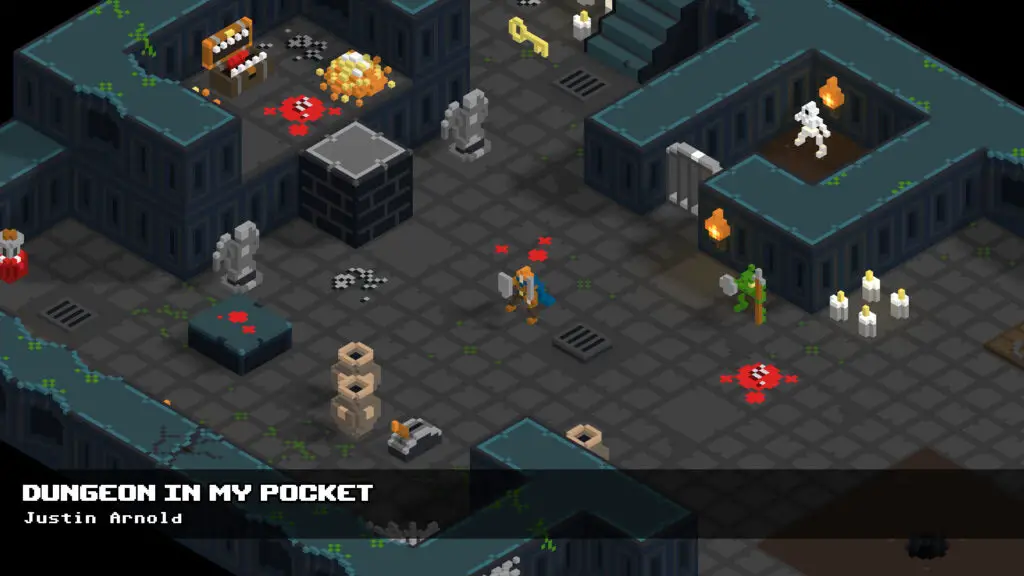
9th Turn) How hard is to develop a “solo project”?
I think it depends on the type and scope of the project, but personally the most difficult aspect would probably be the need to handle multiple roles simultaneously – like development, testing, marketing, etc. In general, being a solo developer isn’t necessarily hard (or easy either), as a lot of it just comes down to having the patience and perseverance to stick with the project. It’s also important to not overwhelm yourself and get burnt out, which can be especially tough if it’s a project you’re passionate about. I really enjoy developing RPG in a Box and often find myself working more hours than I should, not leaving enough time for relaxation (e.g. playing video games, which thankfully my wife reminds me to do, haha).
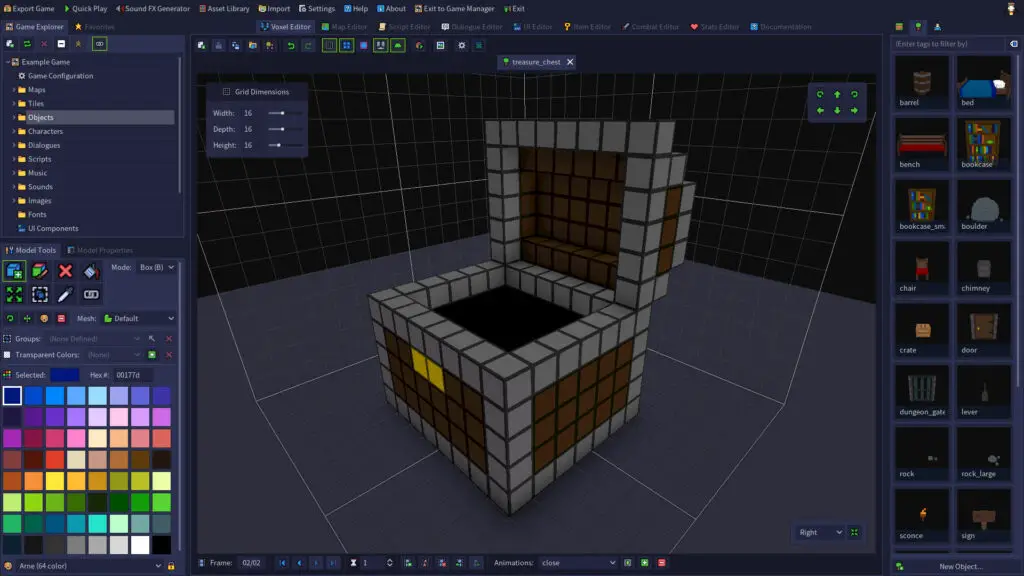
10th Turn) RPG in a Box has been in development for many years. Can you tell us when you plan to release the game?
I’m planning to move out of Early Access once I reach v1.0, but honestly I have no idea how long that will take.
Just roughly estimating, I would say I have at least another year until v1.0. However, this will just be the stage at which it contains all the core features. I have a ton of longer term ideas in store for RPG in a Box, so v1.0 will really just be the beginning! For anyone interested in seeing what’s planned for both the near future and long term, I’d recommend checking out my Trello board.
Bonus Turn) Before leaving you, just a bonus question. What is the latest turn-based game you’ve played or are still playing?
Unfortunately, with as much time that I put into RPG in a Box I haven’t been able to play many games since its development began, as much as I enjoy them. I don’t recall the last true turn-based game that I played, but as for RPGs that would be the first Pillars of Eternity, which I played in 2017.
Looking back over the last few years, I’ve only played a handful of games – from most recent to oldest, those that I can think of would be Loop Hero, Half-Life: Alyx, DOOM Eternal, and Risk of Rain 2. And a bit of Battlefield 2042 lately. I’m a huge shooter fan, in addition to loving RPGs!
I’m also planning to get back into No Man’s Sky with my wife in the near future – really excited to experience all the new stuff that’s been added since we last played!
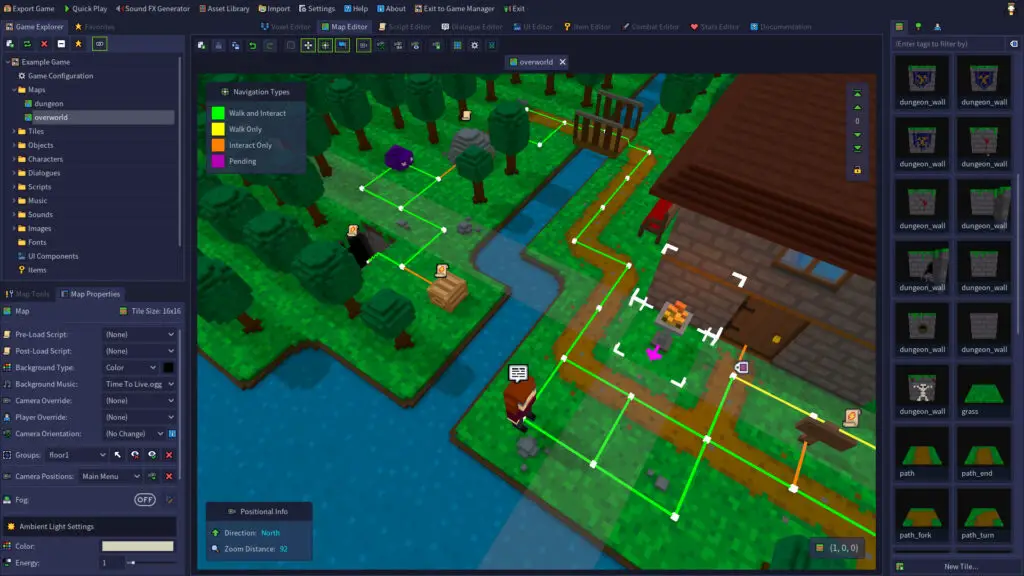
Thank you very much for your time. We will continue to follow your project. Good luck!
For any other information about “RPG in a Box” please consider the following links:
Official Website: https://www.rpginabox.com
Official Discord Server: https://discord.gg/rpginabox
Steam Store Page: https://store.steampowered.com/app/498310
itch.io Store Page: https://zeromatrix.itch.io/rpginabox
Reddit: https://www.reddit.com/r/rpginabox
Twitter: https://twitter.com/rpginabox
YouTube: https://www.youtube.com/c/RPGinaBoxOfficial
Trello Board: https://trello.rpginabox.com
Patreon: https://www.patreon.com/rpginabox

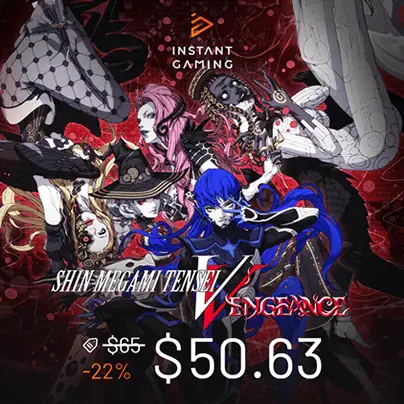








Do you like to develop games? Do you like developing with no-coding involved? Or do you prefer coding? Do you like to have a suite of tools built into your development environment that ranges from game editing, world editing, image editing, model editing to music and sound editing? Do you like software development kits that are great for beginners but powerful enough for advanced developers? Do you like software that is regularly updated? Then RPG In a Box is the tool for EVERYONE.
I can not stress enough how much I love this development software. To me, this software is far more advanced than a pre-release software should be. I have even compared it with other so-called RPG game engines and find this to be so much more powerful and intuitive and can only imagine that when it reaches 1.0 it will far surpass any other software of it’s genre around. In fact, I enjoy using RPG In a Box far more than I would Smile Game Builder, 001 Creator or even RPG Maker.
For starters, it’s very easy to use. Just watch the very brief tutorials. But that is not all. The development environment literally offers almost any tool you would need to develop your game without the need to go outside the box(PUN INTENDED). There’s no fancy third party software, drivers or tools that you would need to install to get this software up and running. It works right out of the… wait for it… BOX. What is nice about this is that you can not only distribute the game in builds for Windows, Mac and Linux.. But you can actually DEVELOP in those desktop systems as well. I can not stress enough how awesome that is. What is also nice is that the engine was created out of the powerful development tool, Godot. This ensures that as long as the developer is updating the software, it will always use the latest technology and compatibility needed for your hardware and OS. If you need to do a live debug, you also have a debug console built-in. But that is all just the tip of the iceberg.
What I especially like is the visual node scripting editor which allows beginners to learn how to script since while you use the node editor it actually creates the written code for you to view and edit as well. But if you want a little more control, the ever expanding scripting language that comes built into the software is a great way to add even more capabilities and features to your game.
My absolute favorite tool that I use on RPG In a Box is the Voxel Editor. In fact, I use the voxel editor as my primary voxel editing tool PERIOD. It’s not as powerful as some other Voxel editors out there like MagicaVoxel or Qubicle, sure. But it has a very simple to use interface that makes creating, editing and even animating voxel objects easily. I often use this editor as my starting point for voxel design and then export to other editors. Actually, RPG In a Box even supports importing from MagicaVoxel or Qubicle which is awesome!
The map editor is a fully featured system that supports lighting and tile based editing. What is nice is that you also can modify terrain types and object types which can allow or prohibit movement to certain tiles, create vehicles and other travel systems and even allow climbing, pushing and pulling objects. Each map can support multi-level design and even features some cool enhancements such as Fog of War. Couple this with the camera and you can have some great perspectives you can create to mimic many different styles of game play and game types which doesn’t just restrict you to RPG games. With the built in camera perspectives and GUI tools, you can even create First Person Shooters(FPS), Point and click adventure games in both first and third person perspectives, etc… Your views can range from first person, isometric or even from above to mimic a 2D style RPG. There are endless possibilities.
There is so much more to this engine that can’t be explained in this review which ranges from an already pretty advanced combat system that is receiving even more attention to a very powerful and intuitive conversation/dialog editor with enhancements coming to graphics, game control and more real soon. Believe me… the more is coming as the developer is frequently pushing out updates… and these updates are not small, bug-fix updates. No, they are game-changing, feature enhanced updates.
I can not stress this enough.. of all the engines I have ever used for game development, RPG In a Box has become my favorite even above Godot itself or Unity or others like SGB(Smile Game Builder), Adventure Game Studio or RPG Maker. Try the Demo’s. Watch the tutorials and play the games that have been created. I have no doubt that you will become a believer.